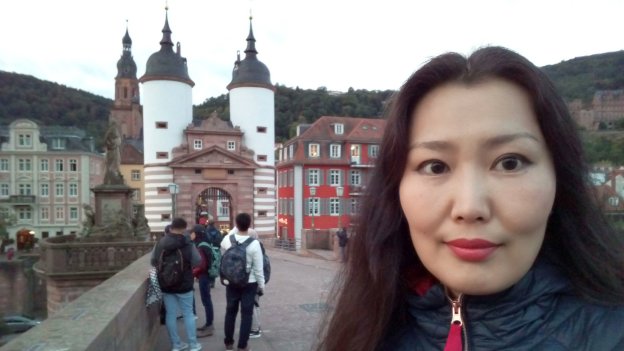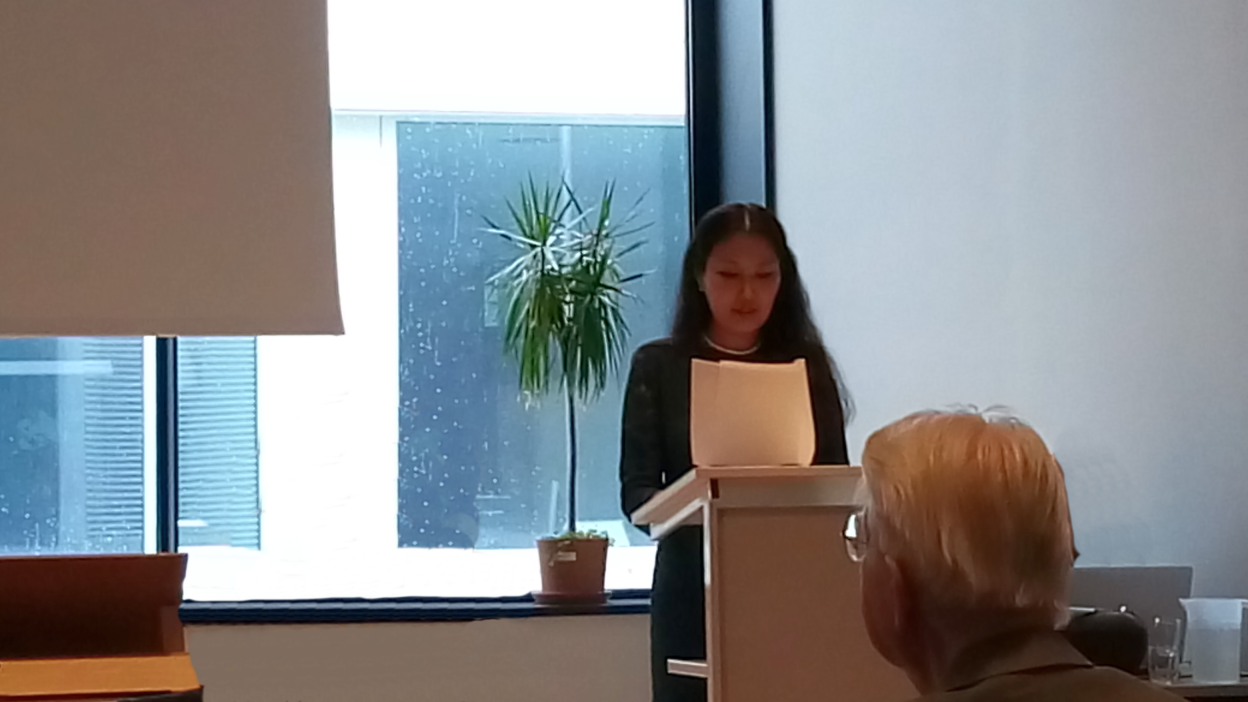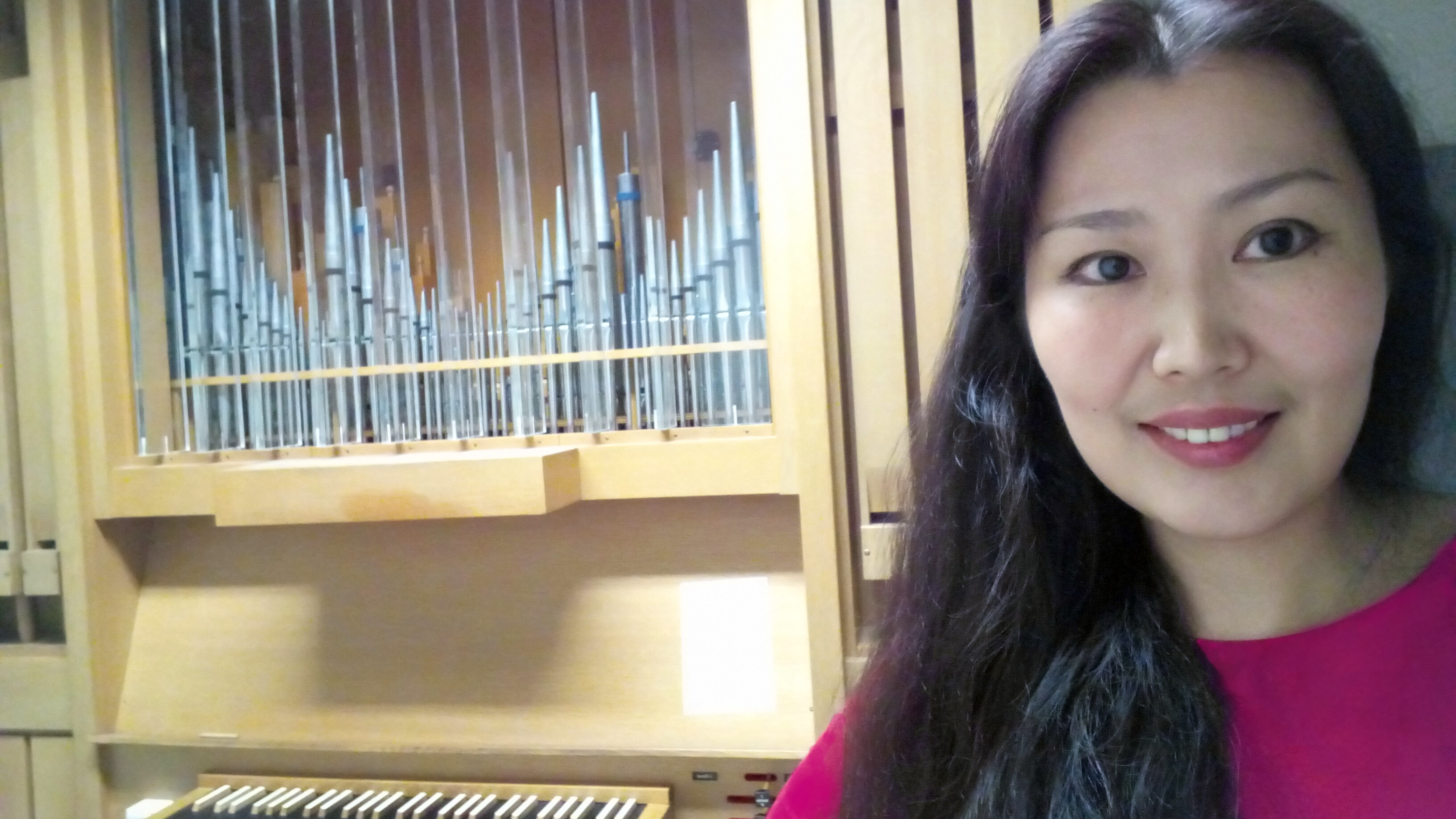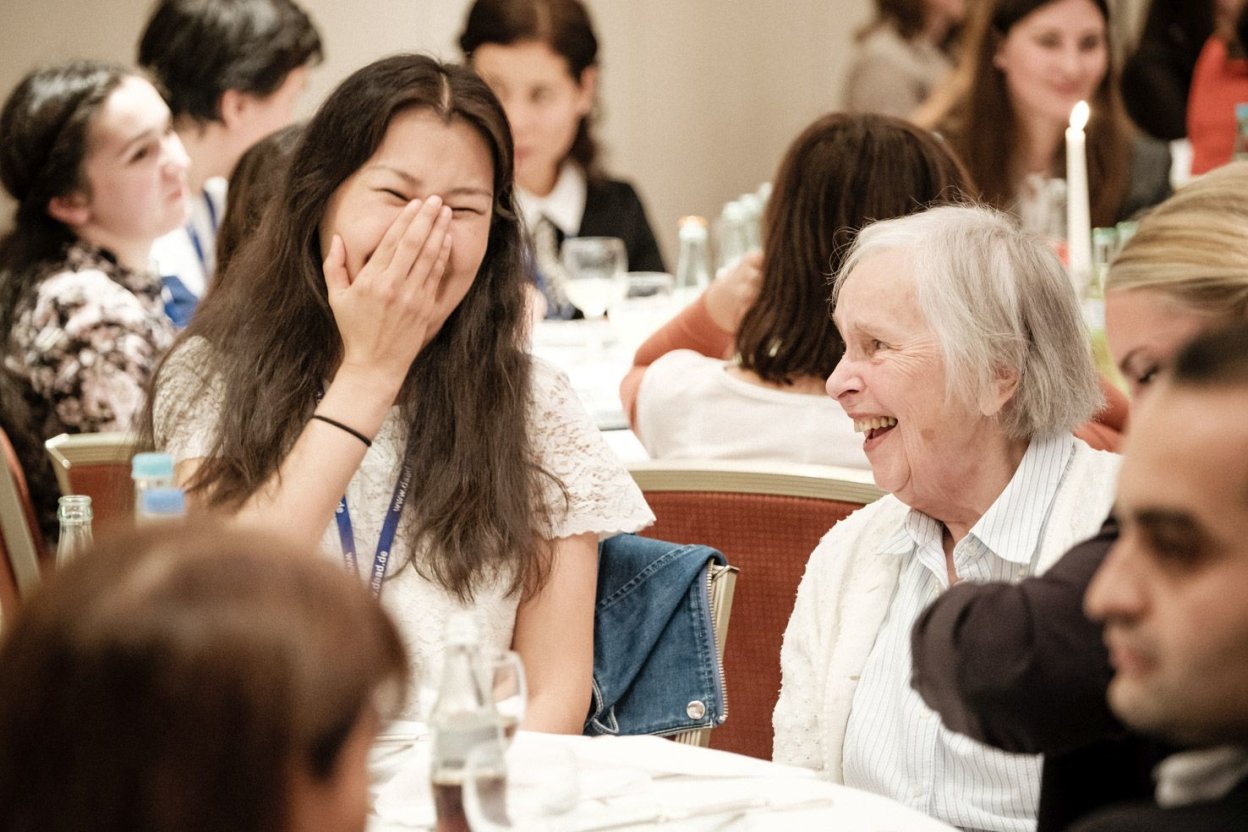Fedosia Tabyisova
 Privat
Privat
On the famous old bridge in Heidelberg
"For me, the time in Heidelberg was a musicological research I could only dream of before. The radiant memory of Professor Ulla Johansen, who did so much for us, will remain forever in our hearts"
PhD student Fedosia Tabysova researched the musician Arnold Schlick as part of the Ulla Johansen Fellowship in Heidelberg.
In these words, she reports on her stay:
In 2019, I was lucky enough to be selected for the DAAD Foundation's Ulla Johansen Scholarship. An additional gift to the scholarship was a two-month summer course in German B2-B3 at the Goethe-Institut language school in Göttingen. Thanks to him, I was able to improve my German language skills. This was confirmed by a compliment from my German scientific director, who immediately noted a qualitatively new level of our scientific correspondence.
Since the subject of my scientific research is dedicated to the personality and creative heritage of the famous Heidelberg musician, organist and lute player, organ expert and composer of the Renaissance, Arnolt Schlick (1445-1460 - after 1521), my choice fell on the Hochschule für Kirchenmusik Heidelberg. Arnolt Schlick is a significant figure in the history of organ art, having left one of the first German-language treatises on organ building and the ecclesiastical practice of organists. This is "Mirror of Organ Builders and Organists" (1511). The second surviving work of 'Master Arnolt the Blind' is the earliest printed German organ and lute tablature "Tabulaturen etlicher lobgesang vnd lidlein vff die orgeln und lauten" (1512). The most important reason why I had to go to Germany was a known copy of the treatise, which is kept in the historical Marienbibliothek (Halle), as well as the translation into the modern German language by Paul Smets with a lot of information in the editor's epilogue, which was available in the Heidelberg University Library. There I was also able to familiarize myself with important sources on Schlick's work as well as literature on the subject of the dissertation.

Privat
The lecture in the 'Haus der Musik' in Innsbruck, Austria
The professor of this fine university, Dr. Michael Gerhard Kaufmann, responded positively to my request to supervise the dissertation, and from that moment on he took an active part in my scholarly and musical life in Germany. It was thanks to him that the program of my stay in Germany turned out to be very rich. On his recommendation, for example, I took part in the competition for participation in the International Symposium "On the Maximilian Jubilee - The Organs of the Innsbruck Court Church and their Cultural Environment: History and Present", organized by the Mozarteum University (Salzburg) in Innsbruck, Austria, where the residence of Emperor Maximilian I was located.
My lecture on the topic of the dissertation "On the ideal organ of Arnolt Schlick" took place at the beginning of September in the Haus der Musik (Innsbruck). In addition, thanks to the recommendation of Professor Kaufmann, I was able to attend a one-semester guest study in the harpsichord class with Lecturer Christiana Lux as well as in the organ class with Lecturer Maria Mokhova at the Hochschule. Thanks to Professor Kaufmann I was also able to attend courses for organ experts, to visit historical organs in Innsbruck and to get to know the complex organ building from the inside.

Privat
A visit to a historic organ in Innsbruck
The advanced training in the major was very interesting and exciting with a lot of historical information that provided the technical and contextual basis for the research. So it is obvious that I was very lucky with a German academic advisor, as he developed a special and versatile program for me, with a focus on the historical approach, for an advanced research training, supported my efforts and helped a lot with the documentation. He also agreed to remain my second research supervisor after the completion of the fellowship. I would like to emphasize not only his great professional qualities, but also the human ones - openness, patience and helpfulness.
As far as everyday life in Germany is concerned, I noticed such human traits of the local people as great patience, real democracy, helpfulness. I also noticed these qualities in my German teachers, who always surprised me with their patience, which was combined with perseverance in the educational process.
True democracy, as I understand it, is the ability of the German people to listen to others, to respect another opinion, even if it is not entirely correct. It is hard to say what the differences are between the German and Jacutian way of life. But I was struck by the difference between working in the German and Russian educational systems. Teachers in Germany can afford to focus much more on their academic work than their Russian colleagues. The latter have to spend a lot of time on bureaucracy: writing all kinds of documentation and programs, passing accreditations, etc.
There is undoubtedly a difference between German and Russian service. In Germany, a more professional approach is evident in it. The service staff is often very competent, cultural and friendly. As far as I know, a university graduate can also work at the checkout in a supermarket. The attitude of working with the service sector in Germany seemed practical and democratic to me. In Russia, the level of service has recently become better than, for example, 20 to 30 years ago, but there is still room for improvement. I find it difficult to assess other leisure activities, as I have too little free time lately due to the heavy workload in my job and studies.
Another important point I find is that I have found new friends in Germany with whom I maintain friendly contact, exchange opinions and with whom we mutually plan guest trips.

Privat
Stipendien-Patenschaft means joy for both sides
I am very grateful to the DAAD Foundation and Professor Ulla Johansen, for the invaluable opportunity they give us by awarding scholarships to improve our level of education. Unfortunately, Professor Ulla Johansen, who made a great personal contribution to the development of a new generation of scholars from Yakutia, donated her personal library to the National Library of the Republic of Sakha (Yakutia) and established a personal scholarship through the DAAD Foundation, passed away in February this year. The radiant memory of Professor Ulla Johansen, who did so much for us, will remain forever in our hearts.
As of Summer 2021. The German version is the original.


